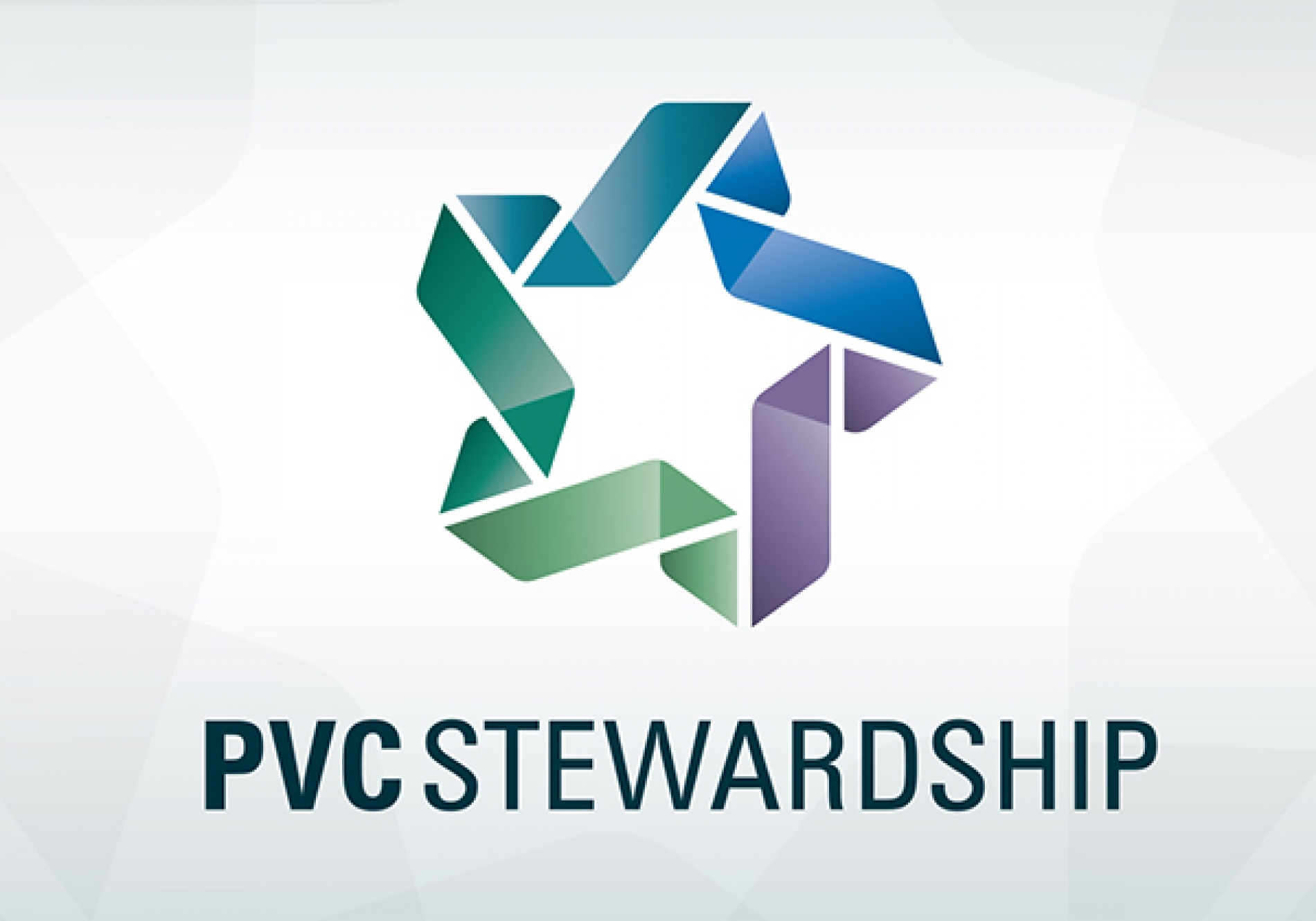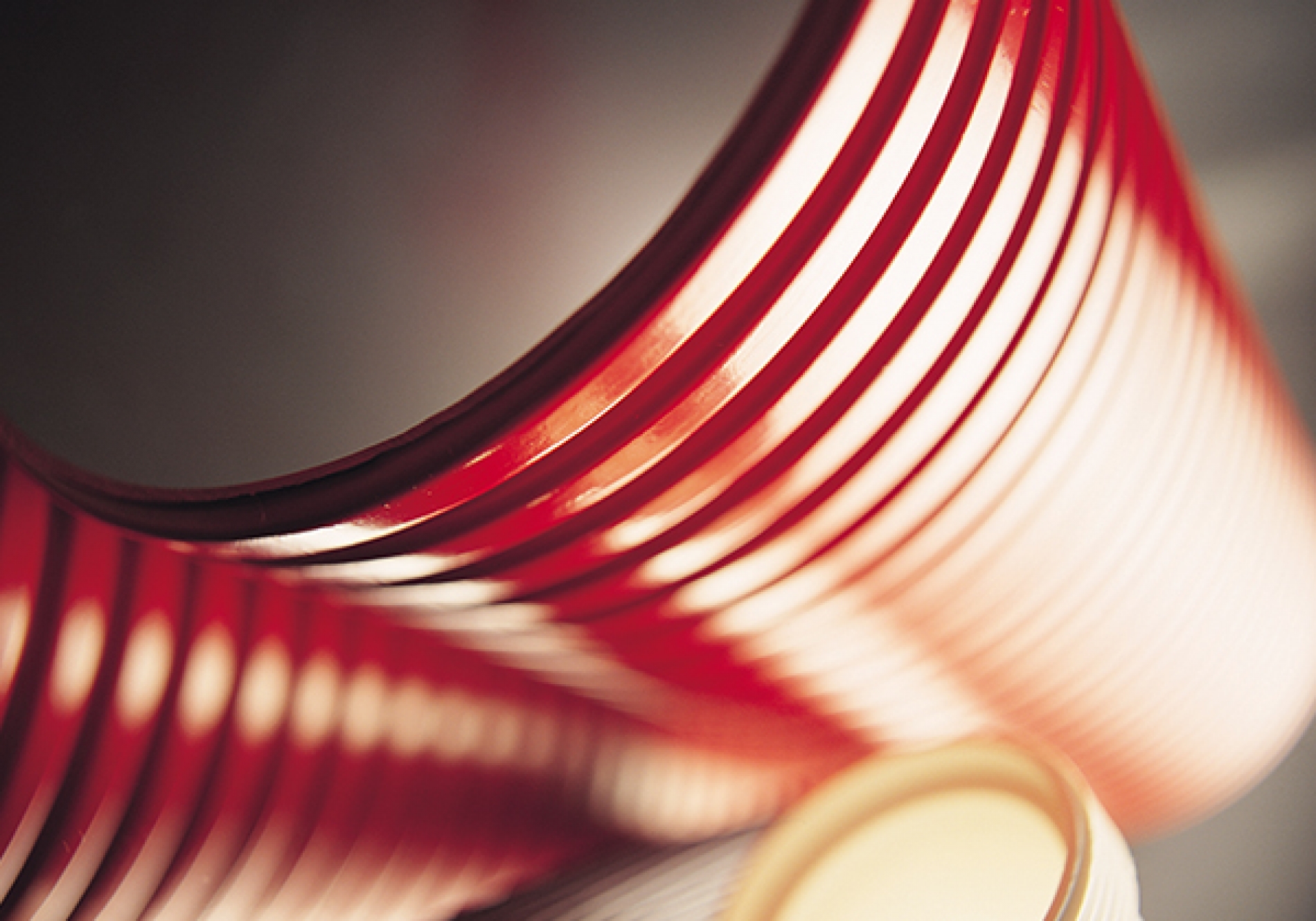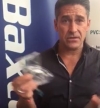Annual progress report on PVC industry contribution
Written by Super UserAt the Vinyl Council, we believe it is how a material is managed and used throughout its life cycle which determines its contribution to a more sustainable society and economy. To guide and support companies in the PVC value chain in Australia, industry and stakeholders developed the PVC Stewardship Program as an on-going, long-term, voluntary undertaking by the industry to address progressively environmental, health and safety issues along the PVC product life cycle within responsible and deliverable timeframes.
The 2016 annual report of progress achieved by industry through implementation of the PVC Stewardship Program has just been released, following independent verification by Ernst & Young. Now in its fifteenth year, a record 42 Signatory companies provided their 2016 data and information to the Vinyl Council, with almost one third of them first time reporters this year. The latest report finds that almost three-quarters (73%) of the Signatories achieved compliance rates of 80 percent or more.
Nine Signatories were fully compliant with all the commitments relevant to their business, earning them the Vinyl Council’s Excellence in PVC Stewardship Award.
The 2016 annual report saw improvements in compliance for three key areas of the Program:
- avoiding mercury in upstream raw material manufacture;
- commitment to energy efficiency and reductions in greenhouse gas emissions; and
- implementation of environmental management systems.
Compliance with the commitment to source raw materials from supply chains that do not use mercury cell electrolysis technology, or mercury catalysts rose from 64 percent in 2015 to 82 percent in 2016. Furthermore, only one Signatory was unable to access this information from their suppliers, demonstrating the growing acceptance of greater transparency in supply chains.
In early 2016, the Australian vinyl industry saw the closure of the country’s last remaining local resin manufacturing plant. Product manufacturers now source resins from overseas suppliers, increasing the complexity and globalisation of supply chains and making transparency and responsible sourcing even more important.
The PVC Stewardship Program facilitates presenting the evidence of the traceability of PVC throughout the product life cycle. As part of the report verification process, nine audits were conducted at Signatory company sites to help assess the veracity of the data being used in the report.
In only the second year of implementing a new commitment to improve packaging material recycling, 24 Signatories reported against the commitment, up from 14 in 2015. A growing number of Signatories report that more than 70 percent of incoming packaging waste at their business site is being recycled; they record or measure how different waste streams are managed at their site/s; and they undertake initiatives such as packaging design improvements, packaging material labelling, packaging light-weighting and offering packaging take-back programs.
The annual report identified some areas for further improvement:
- Embedding PVC Stewardship commitments into business policies and procedures so that it is part of core business;
- Using recoPVC (recycled PVC) in products supplied to the market – although 6,292,609 kilograms of recoPVC was reported as contained in products Signatories supplied to the market in 2016, two out of five product suppliers are not yet supplying products containing recyclate;
- Completing the phase out of lead-containing additives - over 99.45 percent of use of these additives has been phased out by Signatories since 2002, however two Signatories are working to find technically feasible alternatives to some minor uses of them for specific applications, within the timelines they had set upon joining the Program.
According to the Vinyl Council's PVC Stewardship Manager Ms Laveen Dhillon, the requirements to be met under the Program are challenging. "Each year Signatory companies must verify that they or their upstream suppliers meet stringent manufacturing standards set by the Program for raw material sourcing, as well as meet local manufacturing commitments such as in use of additives, or implement energy and resource efficiency".
Audit findings showed that Signatories are undertaking internal quality checks and procedures to improve the accuracy and reliability of reporting. Ms Dhillon will continue to work closely with Signatories in 2017 to strengthen engagements across the PVC supply chain, improve program reporting requirements and promote resources available to reach compliance.
Download the 2016 full report here.
Note: The PVC Stewardship Program, managed by the Vinyl Council, is a series of commitments which Signatories are required to implement and report on annually to drive continual improvement in the vinyl value chain in Australia and reduce the environmental footprint of PVC products consumed here. Given the varied nature of Signatory businesses, the list of commitments applicable to each company varies depending on its activity and position in the supply chain.
The presence of plastic pipe is ubiquitous, but some might say its profile is low simply because plastic pipe is often out of sight, below ground or behind walls.
Yet plastic pipe connects Australia. It plays an essential and integral role in Australia’s built environment, the nation’s infrastructure, electricity transmission, agricultural irrigation, stock and domestic water supply and the mining and gas industries to name a few.
People who think plastic pipe is secondary to their lives might reflect on the fact that these products provide upwards of 85 per cent of the pipe infrastructure to major urban utilities for power and the reticulation of gas, water, and sewerage. The high proportion of plastic pipe and conduit in the delivery of these critical utilities reflects enormous confidence on the part of asset owners in the ability of these products to deliver long-term efficient performance.
But today, efficient performance is not enough. Given the widespread use of plastic pipes, it makes sense to ensure we better understand what we are dealing with.
Leading Vinyl Council and PIPA (Plastics Industry Pipe Association) member companies, Iplex and Vinidex, have recently published world-first product–specific Environmental Product Declarations (EPDs) for their entire range of plastic pipe products. What is an EPD and why did the companies make this decision?
In ourlatest article published in Sourceable.net, PIPA’s executive general manager, Mark Heathcote elaborates on the drivers leading to these two major PVC pipe manufacturers separately taking the decision to publish EPDs for all of their pipe products, how it benefits the construction process and what lessons other product suppliers may learn from their experience.
More...
Jamie Durie OAM urges hospitals to get involved in PVC recycling
Written by Super UserAt the Australian Nursing and Midwifery Federation's Health and Environmental Sustainability Conference on 28 April, the world-reknown Australian horticulturalist, Jamie Durie OAM met with representatives of the PVC Recycling in Hospitals program.
On learning about what happens to medical waste, Jamie, a vocal environmentalist, enthusiastically lent his support to encourage more hospitals to join the program.
He discussed with staff from the Vinyl Council, Baxter Healthcare and recycler Welvic Ausutralia how PVC medical products can be recovered from hospitals and the collected material recycled into a range of new products.
It was particularly fitting for Jamie that the recycled PVC is currently being re-used in products such as garden hose!
Watch Jamie's shortvideo messageabout the program.
To learn more about the recycling program, including thebusiness casefor implementing it, check out ourrecycling pages.
Over the past five years or so, some 95 healthcare facilities across Australia and New Zealand have started to recycle PVC medical products and other recyclables used in the delivery of healthcare services. The PVC Recycling in Hospitals program has been something of a world first – now being adopted in the UK, North America and South Africa - driven by passionate medical staff concerned by the growing consumption and waste of resources in the healthcare sector.
Our program has shown the enormous will of staff to do at work what they do at home – recycle. It has paved the way to recover and recycle other plastics and materials from healthcare. However, working with these hospitals to put systems and infrastructure in place to allow recycling has highlighted some challenges in the design of these buildings.
When it comes to hospital development, waste management is not a top design priority (nor should it be compared to patient comfort and outcomes), but as a building type, hospitals generate significant - and growing - volumes of waste: food, plastics, metals, glass, paper and cardboard. And this waste generation represents a sizeable operational cost over the building lifetime.
The World Health Organisation has found that high income countries like Australia produce over 3.3 kg of waste per bed per day, 85 percent of which is generally non-hazardous / non-infectious waste. A metropolitan general hospital in the US is estimated to produce a whopping 10.7kg per occupied bed per day of which almost 8kg is general waste.
In part, this waste generation has been driven by improved infection control which has led to increasing adoption of single-use, disposal medical products. Much of this is plastic material and 30-40 percent of that is PVC. These items, such as oxygen masks and tubing, fluid solution bags, bottles and containers, are treated as general waste in Australia, and have traditionally gone to landfill at a cost to the hospital.
Our older hospitals were not designed to cater for this growth in waste. As we found in developing the PVC recycling program, buildings had insufficient floor space for placement of bins in medical areas; lacked interim storage space for bins of collected waste and had loading docks that were clearly struggling to cater for the growing volumes of various waste streams. In one case, the depot ceiling height was even too low to allow entry of today’s larger waste collection trucks!
If healthcare facilities are going to meet commitments to waste management principles, they need to implement comprehensive systems to facilitate segregation of wastes at source in medical areas and the safe movement of waste through the hospital to the loading dock for transportation away from the site.
Under current Australasian Health Facilities Guidelines, a typical 14m2 dirty utility room – the largest specification - in a general hospital might have space allowed for just two 240 litre bins, one of which would probably need to be for clinical waste. If hospitals are to collect and segregate waste streams effectively at source i.e. in the medical area, then appropriate space is required for suitable bins: clinical waste, PVC, general waste, and other recyclable streams. This has been a challenge for virtually every hospital we have worked with.
It requires forward thinking design of safe and efficient systems for collecting, handling, storing, transporting, treating, recycling and disposing of healthcare wastes. This encompasses:
- Location and size of waste storage rooms
- Holding areas (eg dirty utility rooms) sufficient for segregated waste streams close to where waste is generated
- Internal waste movement routes (separated from high people movement and sensitive areas)
- Layout and design of loading docks with space for balers and compactors, recycling bins, waste treatment, hazardous waste storage, bin and trolley cleaning, transport access etc
As recycling of consumables in healthcare grows, this means planning up front as hospitals upgrade or are built new, estimating waste generation volumes, types of waste and the types and numbers of bins to accommodate it, as well as identifying the departments that will recover and segregate waste streams for recycling.
Design of sustainable healthcare facilities today has come a long way in terms of infection control and improving comfort and outcomes for patients. But let’s make healthcare waste management a carefully integrated part of that system to avoid the potential public health and environmental consequences of waste generation.
We live in a chlorine economy and, no, its not all about vinyl
Written by Super UserWe live in a chlorine economy
We live in a chlorine economy. And, no, it’s not all about vinyl.
Yes, vinyl is composed of two simple building blocks – one of which is chlorine (the other is ethylene, from natural gas). But chlorine, which is based on simple salt, is used in a very wide range of products far beyond those made of vinyl.
Chlorine is a key building block in everything from automotive components to firefighters’ clothing. You can find chlorinated compounds in wetsuits (neoprene rubber from chloropropene). It’s used for everything from water treatment to erasers (thio-chloride curing agents used in some rubbers).
These sectors depend on chlorine chemistry: health care, transportation, building and construction, defense and law enforcement, and the food and water sectors all rely on chlorine derivatives and chlorinated chemicals.
Chlorine is versatile, and it plays well with other chemicals to create some pretty cool stuff. In fact, did you know that chlorine chemistry plays a role in components for wind turbines and solar panels?
It’s also part of the chemistry in aerospace components and high-precision lasers and environmentally friendly coolants. All these products rely on chlorine chemistry and the multitude of chlorinated chemicals and compounds.
Here’s some other items that rely on chlorine chemistry at some point in the manufacturing process:
- computers
- smartphones
- cosmetics
- mirrors
- window screens
- mattress covers
- blankets
- nonstick cookware
- sportswear
- golf bags
- artificial glass
- guitar strings
- bulletproof vests
- tires
- batteries
The Chlorine Tree, prepared by American Chemistry Council Chlorine Chemistry Division, shows the breath and scope of chlorine’s use and demonstrates just how critical the chemical is to manufacturing – and how it exists at the core of many products. Without it, what would you miss most?
Breakthroughs with recycling advertising banners in Australia
Written by Super UserBreakthroughs with recycling advertising banners in Australia
For several months, a dedicated team led by the Vinyl Council has been making progress with the challenges of recycling advertising billboard skins. The team has achieved critical breakthrough results, some world ‘firsts’ and gained positive support from industry.
Currently over 1,200,000 m2 (500 tonnes) of advertising billboard skins go to landfills around Australia every year at a significant cost to business and as a waste of durable materials. Having promoted the latest blockbuster movie or a government safety message, the skins take up valuable space in landfills.
The challenge is that the skins are made of two excellent polymers (vinyl as a coating over woven polyester) which are hard to separate and reprocess - which is exactly why they are so suited for all weathers and conditions; they are UV and tear-resistant, waterproof, colour-fast, can be welded and are very tough. This is similar for other vinyl coated fabrics, including truck tarpaulins and grain covers, all of which currently go to landfill in Australia (total over 6,000 tonnes combined per year) and in most countries around the world.
In Europe, there is a €20M plant used to reprocess such material back to its constituent polymers. That solvent-based technology is not viable in Australia so the only option is to innovate and find economically viable alternative approaches and new products.
To support the research into this challenge, earlier this year the NSW Environment Trust has invested together with industry to enable collaboration between a team of keen and brilliant minds.
“Our team comprises skilled research assistants in chemistry at UNSW, industrial designers at Monash University, highly experienced PVC converters at Welvic Australia, innovative and successful manufacturers in PMG Engineering, and supplier Rojo Pacific who is keen to lead the advertising industry to a more sustainable future” explains Helen Millicer, Manager of the Industry Recycling Strategy at the Vinyl Council of Australia.
Together, the Vinyl Council and the Outdoor Media Association are providing industry-wide engagement and coordination.
“This problem is too big to do it alone and therefore we are delighted to have received funding support from the NSW Environment Trust as part of the NSW EPA’s Waste Less, Recycle More initiative” Helen added.
“A grant like this, that supports innovation and reprocessing in Australia, is a game changer. It means that we can manage a focused and properly resourced project with contributing partners to find viable products and end-market alternatives and thereby prevent loss of quality material to landfill.”
The outcome of the funded trials, research and testing has led to two innovative Australian mechanical recycling technologies, one of which is proceeding to patent.
Product design students on the team have produced several prototype industrial designs taking advantage of the features of the material, including highway sound barriers, children’s push bikes, and floor safety mats. Trials have also worked with cut, woven and reformed material and material welded into molds to create a stronger fabric skin. Reprocessed material has been trialled for 3-D printing in another world ‘first’.
These developments have already led to specifications for a packaging product for trial with a major multinational company.
“Importantly, companies in the advertising industry met at an Industry Forum in Sydney in October and have given the green light to continue the project, to collaborate and contribute to finding a viable solution for recycling billboard skins in Australia”.
“We are delighted to have a team of brilliant minds, innovators and leaders in their fields contributing their time, expertise and facilities to find low cost solutions to this world-wide problem and sad waste of materials,” said Helen Millicer.
To complete the project in the next few months, the design prototypes will be finished and exhibited. A report will be published summarising the economics of collection, reprocessing and remaking of the billboard skins and the chemical and mechanical test results.
While this project has focussed on advertising banners in the first instance, it leads to the possibility of applying findings to other coated fabrics.
For more information and photos contact:
Helen Millicer, Project Manager, Industry Recycling Strategy, Vinyl Council of Australia This email address is being protected from spambots. You need JavaScript enabled to view it.,
0413 875 872, www.vinyl.org.au and http://www.environment.nsw.gov.au/grants/2015-problem-waste.htm











